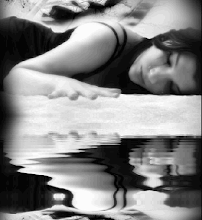Healing Through Letting Go
Letting Go. Releasing. Moving on. These are words that come to mind when holding on to the status quo becomes too painful or takes too much energy.
Even when we're ready, it's seldom easy to let go. But when we do, both we and the other person can become the people we were meant to be—loving without feeling we must control or be dependent on the other for our happiness.
The healing and release we feel when we're finally able to truly let go can't happen, however, until we allow a shift to occur within us, until we're ready for a new way of looking at things, a perspective that is expressed very well in the poem called "What is Letting Go?"
To "let go" does not mean to stop caring. It means I can't do it for someone else.
To "let go" is not to cut myself off. It's the realization that I can't control another.
To "let go" is to admit powerlessness, which means the outcome is not in my hands.
To "let go" is not to try to change or blame another. It's to make the most of myself.
To "let go" is not to care for, but to care about.
To "let go" is not to fix, but to be supportive.
To "let go" is not to judge, but to allow another to be a human being.
To "let go" is not to be in the middle, arranging all the outcomes, but to allow others to affect their own destinies.
To "let go" is not to deny, but to accept.
To "let go" is not to nag, scold, or argue, but instead to search out my own shortcomings and correct them.
To "let go" is not to adjust everything to my desires, but to take each day as it comes and cherish myself in it.
To "let go" is not to regret the past, but to grow and live for the future.
To "let go" is to fear less and to love more.
Subscribe to:
Post Comments (Atom)

No comments:
Post a Comment